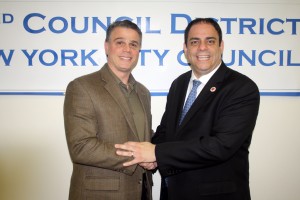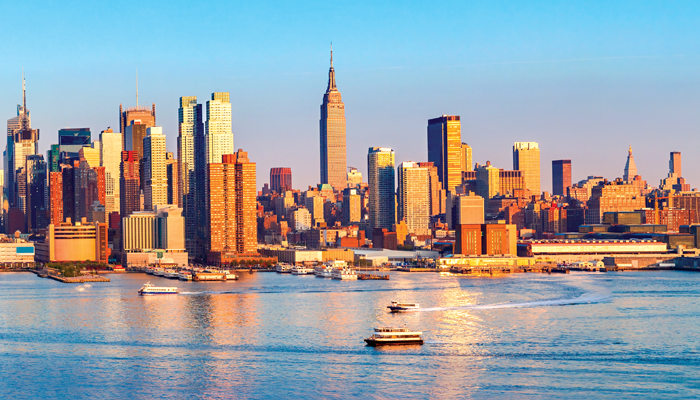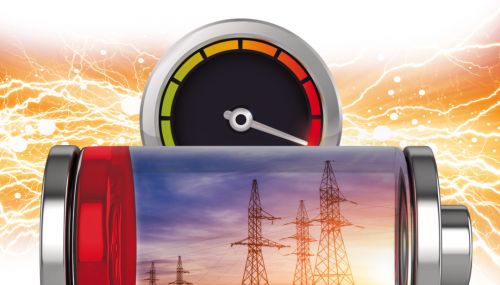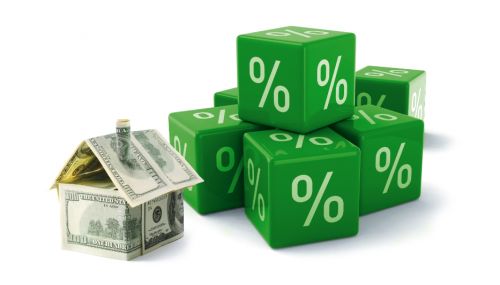Councilman Costa Costantinides targets city ferries. Are power plants next?
New York City has emerged as a national leader in urban environmentalism in recent years, as leaders like City Council Members James F. Gennaro worked with the New York Oil Heating Association (NYOHA) to bring the City’s fuel supply into the future.
 Gennaro retired last year, and others are stepping forward to fill the void in environmental advocacy, most notably one of Gennaro’s successors on the Council, Costa Constantinides. Constantinides was a member of Gennaro’s City Council staff who threw his own hat in the ring in 2013 and won election as the District 22 Council member. Like Gennaro before him, Constantinides places a high priority on environmental issues, and he now sits on the same Department of Environmental Protection Committee that Gennaro once chaired.
Gennaro retired last year, and others are stepping forward to fill the void in environmental advocacy, most notably one of Gennaro’s successors on the Council, Costa Constantinides. Constantinides was a member of Gennaro’s City Council staff who threw his own hat in the ring in 2013 and won election as the District 22 Council member. Like Gennaro before him, Constantinides places a high priority on environmental issues, and he now sits on the same Department of Environmental Protection Committee that Gennaro once chaired.
“Councilman Gennaro was a major advocate for the protection of our water supply and the issue of hydrofracking, and making sure we kept our pristine, unfiltered water supply protected. That was a major issue for us,” the new Councilor said in a recent interview. Constantinides joked that he was “working for a movie star” as a member of Gennaro’s staff, because his boss was featured in two documentaries about biofuels and environmental protection, Fueland Gasland.
First Bioheat Heating Oil Mandate
With Gennaro as an important legislative sponsor, New York City also took an aggressive approach to cleaning the metropolitan area’s skies. First, the City committed to reduce greenhouse gas emissions by 30 percent by 2030, then it started passing legislation intended make the goal a reality.
One landmark law was the nation’s first mandate for Bioheat® fuel. Effective in 2012, heating oil dealers were required to begin selling a B2 blend of petroleum and biodiesel in place of traditional heating oil. The mandate created the first firm market for biodiesel in home heating and gave biodiesel distributors the incentive to build out a biodiesel infrastructure.
In addition to the City mandate, New York State requires all dealers to sell ultra low sulfur heating oil (a maximum of 15 parts per million sulfur) throughout the state. This means that New York City customers are burning a B2/ultra low sulfur blend that NYOHA calls Clean 2. It is the cleanest heating oil required by any jurisdiction in the United States.
The fuel supply overhaul is continuing with a transition away from No. 4 and No. 6 oils for heating. New York is eliminating No. 6 oil and requiring that the sulfur content of No. 4 oil be reduced to 1,500 ppm of sulfur.
Constantinides says New Yorkers should be proud of the city’s accomplishments, because they improve New York in several ways, starting with the air quality. He pointed out that asthma is the leading cause of hospitalization for children under 14 in the area around his neighborhood of Astoria, Queens. “For those kids that have asthma, they miss between 10 and 30 school days a year. Those numbers are sobering as an elected official,” he said. “Anything we can do to improve the lives of the children who grow up here is helpful. That’s the mission.”
A Healthier City
By blending biodiesel into the distillate fuel supply, energy marketers are contributing to a healthier city. “Any time we can reduce emissions, it’s a win for the kids,” he said.
By incorporating biodiesel into the fuel supply, the City is also is creating tremendous opportunity for green jobs in the area of reclaiming and processing used cooking oil. “Before, the restaurants were looking to get rid of this stuff. They needed someone to take it away and dump it somewhere,” Constantinides said. “Now, there’s a market for it. You can collect it. Those are good, green jobs in our city. We’re trying to diversify our way away from Wall Street and develop a tax base that is not only reliant on Wall Street. We’re trying to create those new jobs of the future, those green jobs. This is an opportunity to do that.”
Although New York is already way ahead of other jurisdictions in terms of cleaning up its fuel supply, Constantinides is looking for new ways to improve the environment. He recently introduced a bill to mandate the use of biofuel blends in the ferries that serve the City. “As we grow our ferry system – and I’m hoping to add a ferry stop in Astoria for the first time – we need to make sure that the ferries are green and sustainable, and the best way to do that is mixing in the biodiesel,” he said. “With the city fleets going up to 10 [percent biodiesel] and the city-owned buildings going up, it just made sense that our city ferries, which are becoming a much larger part of our transportation network, should be brought into the fold as well.”
He wants to continue expanding the biodiesel footprint in New York “in a reasoned way, in a way that doesn’t overshoot what we’re trying to accomplish and keeps in line with what the market can actually produce,” he said. “You don’t want to see a mandate that’s unreachable, so we’ve been very judiciously looking at these ideas.”
Constantinides’ commitment to biodiesel is appreciated at NYOHA. “Blends of ultra low sulfur heating oil with accurately blended biodiesel can burn cleaner than natural gas, and that really helps us with the policymakers,“ said New York Oil Heating Association CEO John Maniscalco. “On behalf of NYOHA, I applaud Councilmember Constantinides’ continuing efforts to use clean biodiesel blends to improve New York City’s air quality, further substantiating that NYC’s Bioheat® heating oil is the cleanest in the nation.”
Biodiesel producer REG, which serves the New York Metropolitan Area with six biodiesel positions in New York and New Jersey, also appreciates New York City’s commitment to renewable energy. “It has been a pleasure working with the City Council and the Environmental Protection Committee to expand the use of biodiesel blends for heating and transportation in the City,” said Daniel Falcone, Northeast Sales Manager. “Leaders like Donovan Richards, Costa Constantinides and James Gennaro have put the City at the forefront of progressive urban environmental policy and enabled us to build a biodiesel infrastructure that suppliers can rely on.”
Will Power Plants Be Next?
One long-range target is the power plants that produce the city’s electricity. “One of the reasons we’re having all of the air quality challenges that we are is from all the power generation. If we can get them off the bottle of No. 4 and No. 6 and get them to have a blend, it would be a huge victory. It’s something I have been working on as an environmental advocate here in the neighborhood. Now as a Council member, that allows me to have a larger voice.”
The issue is important to the Council member’s constituents. “I have between 50 and 70 percent of the power generation for New York City in my district. I’ve been working with lot of these power plants on potential re-power projects. That would take down their emissions by changing their generators over to B2 ultra low sulfur diesel,” he said. The City cannot simply order them to switch to cleaner fuels. “At the moment we have to give them some more incentive to retrofit some of their generators. They’re not asking for money. They’re just asking if the state can purchase the additional energy they produce,” he added.
Converting power plants could benefit the City in several ways. “Changing from the old generators makes it more efficient,” he pointed out. “The construction jobs that we create to build those new generators would be a big boon. That would be economic development here in our neighborhood. Those folks that will be building those things will be eating in our restaurants and going to the bars and buying their newspapers and sandwiches here in the neighborhood. The end result is improved air quality with a product that is going to produce additional energy. It a win, win, win. There is no downside.”
Greater Resiliency
The new Council member would also like the city to harden its power generation facilities for protection against another major weather event like Superstorm Sandy in 2012. “We need to protect our resources. If there was a storm that hit northwest Queens in the way that southeast Queens got hit during Sandy, our energy infrastructure would have disappeared into the river, and that would have been a very catastrophic event for the city on many levels,” he said. The administration of Mayor Bill de Blasio needs to follow through on the recommendations from the “Strong, More Resilient New York” plan, the Council member said. “They are looking to build bulkheads and bring things above flood plain. They recognize that we cannot afford to keep the status quo, because the status quo is not acceptable.”
On the subject of natural gas, Constantinides said that the problem of leaking gas mains is only beginning to enter the public consciousness, with New York City taking notice after a natural gas explosion in Harlem in March killed eight people and destroyed two buildings. “It’s something that I’m not sure everyone is aware of. It’s something that we need to hopefully have a hearing on and understand better.” He said. “We need to get our city to a better place environmentally, and if there is fool’s gold out there, we need to be able to go out and call things what they are. If there is something that may appear to be environmentally sound but is not, we need to investigate that and do our due diligence and make sure everything we’re working on is real solid policy, because we can’t afford to be wrong.”
The Council member believes New York should embrace its role as a leader in urban environmentalism. “New Yorkers absolutely should be proud. Under Jim Gennaro we took a lot of steps forward to make ourselves the capital, at least of the United States, when it comes to greening and sustainability,” he said. “As a city, we should be proud. That’s something we don’t want to lose. We don’t want to somehow take our cue from other jurisdictions and fall into this trap of [asking] ‘Where else has it worked?’
“What we were able to do here with bio in New York City is to say we’re going to continue to lead the way, on a lots of issues. We didn’t sit there and say to ourselves, ‘Where else has this worked?’ How can other jurisdictions show us the way? We’re being that leader and showing the way. We should be very diligent to make sure we maintain that leadership.”





